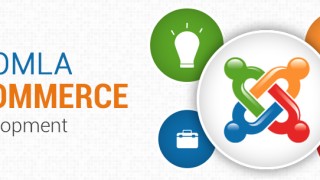E-commerce is a humongous part of the world economy. In 2022, it is projected that e-commerce sales will exceed $6.5 trillion a year. A lot of money is going to be made, and you shouldn’t want to be left out that growing market. However, growing the e-commerce component of your company does come with some risk.
That risk originates from threats like hackers, malware, viruses, corporate spies, cyber criminals and more. Growing your e-commerce business requires also investing in cyber security. It’s the only way to protect your precious data.
The Importance of Your Data
In regards to e-commerce data is everything. All the data you collect regarding your sales, customers, products, marketing and more will become one of your strongest resources. You can analyze that data so you can adjust how you are doing business to maximize your profits. Of that data, private customer data should be the most guarded. There have been many circumstances where customers have sued companies for millions after their data was stolen by hackers.
Online Shopping Data Security Practices
Something you must absolutely protect is your online shopping processes. If you don’t take the proper precautions to secure them, hackers may be able to gain access to the data transmitted by customers both during and after the purchase process. Overall, you need to make sure the shopping cart software, payment procedures and more only use the newest and most effective forms of encryption to prevent data theft. Make sure the online shopping portion of your operation is looked over closely by security experts and corporate transaction attorneys.
Phishing Scam Security Practices
Another thing you must look out for are phishing scams in which cyber criminals try to extract sensitive information from victims via e-mail. In larger companies, 56 percent of the targets of phishing scams were employees. Training regarding how to avoid these scams is essential. Customers are often targeted as well. This is why you need to use strong verification procedures for customer accounts to prevent criminals from using their information to make purchases.
Credit Card Payment Security Practices
The number one thing hackers are usually after when they hack an e-commerce website is customer credit card data. They then steal those customers’ identities and use their credit card numbers to rack up thousands in purchases. Make sure to work closely with professionals to ensure that all credit card data always remains encrypted at all times on your servers.
E-commerce continues to grow at a rapid pace. It won’t be long before it supplants brick and mortar retail entirely. Getting in on the action is probably the right choice for many business owners. However, be very careful about cyber security when you do so. If you aren’t, the consequences can be severe.



